This post may contain affiliate links. Please read our disclosure policy.
Here is how I make vegetable stock for vegetarian soups and stews. It’s totally vegan, too! The added beans and their juices give the stock viscosity and a better mouth texture making it remarkably similar to a long-simmered chicken or beef stock.
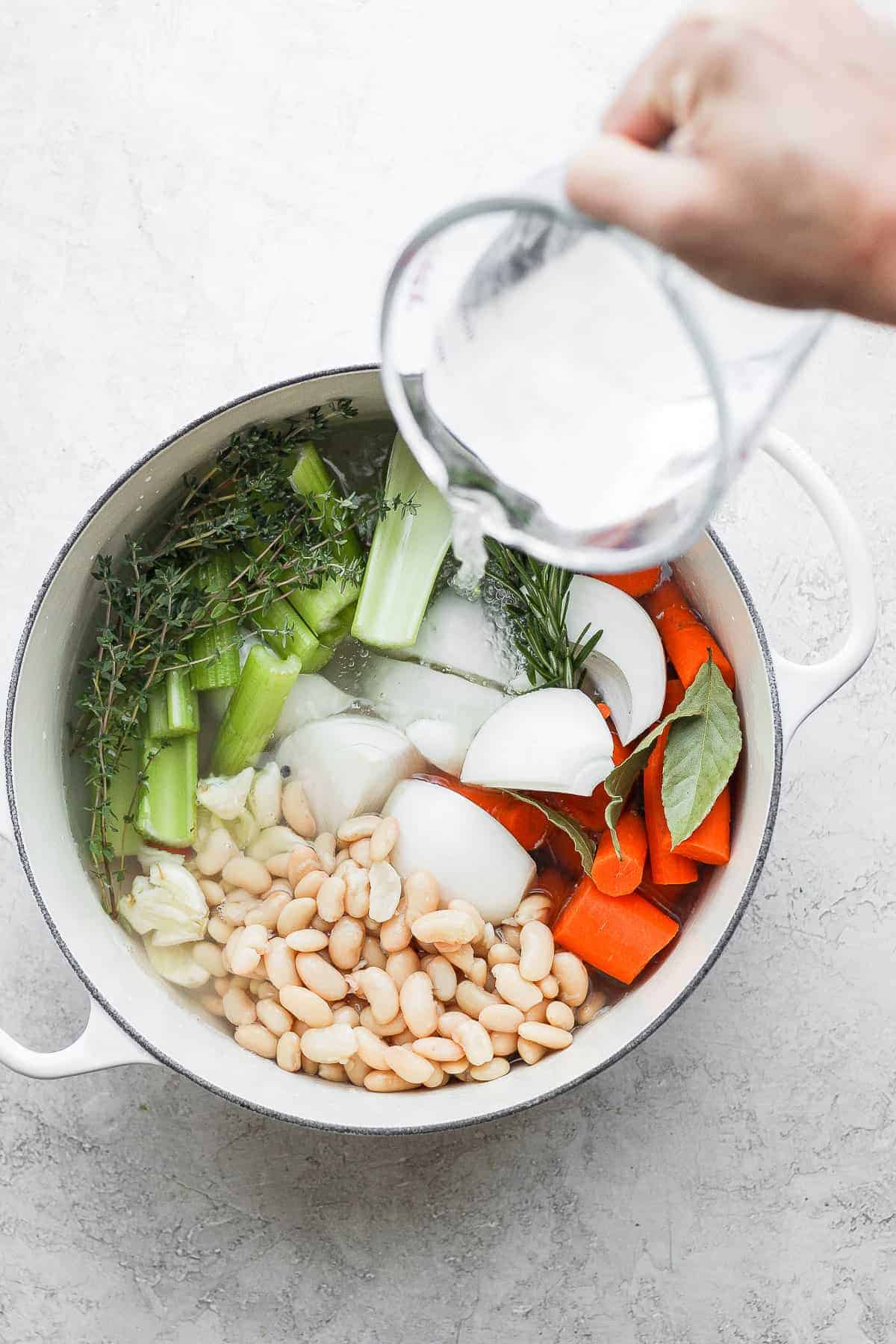
How to make vegetable stock
- Place all your ingredients in a big pot, like a stockpot or Dutch oven. Make sure it is large enough for all your ingredients plus water.
- Add the water, enough to cover three-quarters of the vegetables in the pot. You do not need to completely submerge all the veggies.
- Cover and bring to a simmer on low heat. Once simmering, adjust the heat to maintain the simmer without over boiling. Cook like this for a couple hours. Stir occasionally.
- Uncover, remove from heat, and let cool.
- Fish out the larger chunks of cooked vegetables and beans using a small strainer, spider, or slotted spoon.
- Strain the remaining soup through a fine-mesh strainer to remove all free-floating bits. Refrigerate in a lidded container.
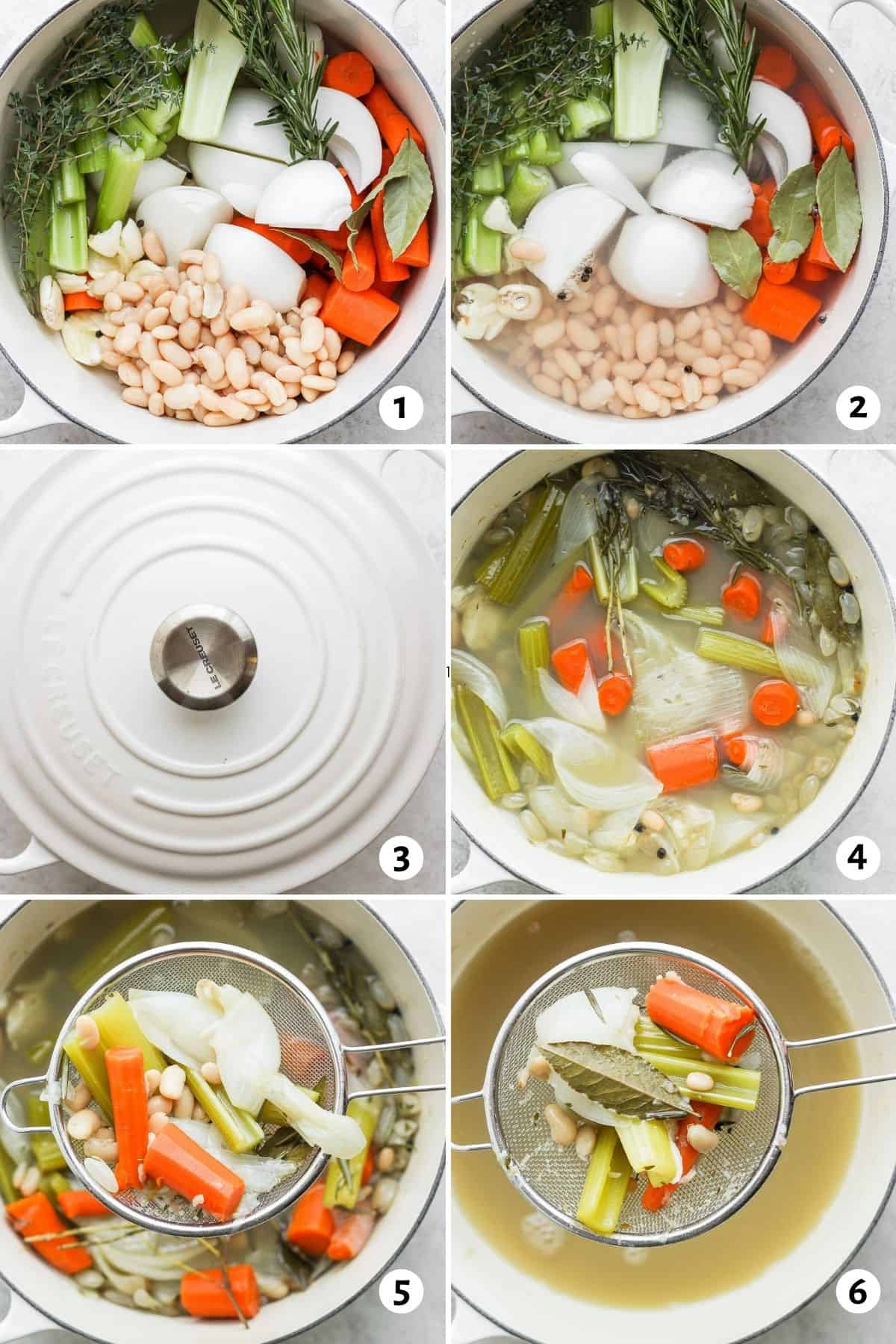
Tips for making vegetable stock
- Roast the vegetables for a much darker stock. This brings out the amazing flavor of the vegetables and mimics some of the roasted qualities of meat stocks
- Make a vegetarian “demi-glace” with the vegetable stock by adding tomato paste. Add 1 tablespoon of tomato paste to the stock after the vegetables have been strained, reduce until it coats the back of a spoon.
- Stay away from adding vegetables from the brassica family Cauliflower, kale, cabbage, broccoli, and other brassicas add bitterness to stock. Save them for their own soups.
- Hold the salt. You’ll notice there is no salt in this recipe. That is a deliberate choice to avoid oversalting since salt will be added to the final recipe for which the stock is destined.
Recipes with vegetable stock
- Easy Chicken Noodle Soup
- Easy One-Pot Ravioli Soup
- Mediterranean White Bean Soup
- Vegan Mushroom Gravy
- Easy Eggplant Moussaka
- Potato Cauliflower Casserole
- Pasta Bolognese
- Pumpkin Pasta with Crispy Sage
- Mediterranean Couscous Salad
- One Pot Chicken and Rice
Frequently asked questions
There are a few differences. Stock is made specifically for use in other recipes. That is why there is no salt added. (See above.) Broth is thinner and seasoned to be sipped as its own soup. Meat-based stocks achieve their gelatinous texture from long-simmered bones. My vegetable stock uses beans to achieve its body.
I recommend keeping for only 4-5 days. For a longer life, freeze for up to six months.
Parsley and mushrooms make good additions as do leeks, or other alliums like shallots. Tomatoes are also not a bad idea. If you are making your stock for a specific dish, you can flavor according, for instance using ginger, perhaps, if you intend it for an Asian dish.
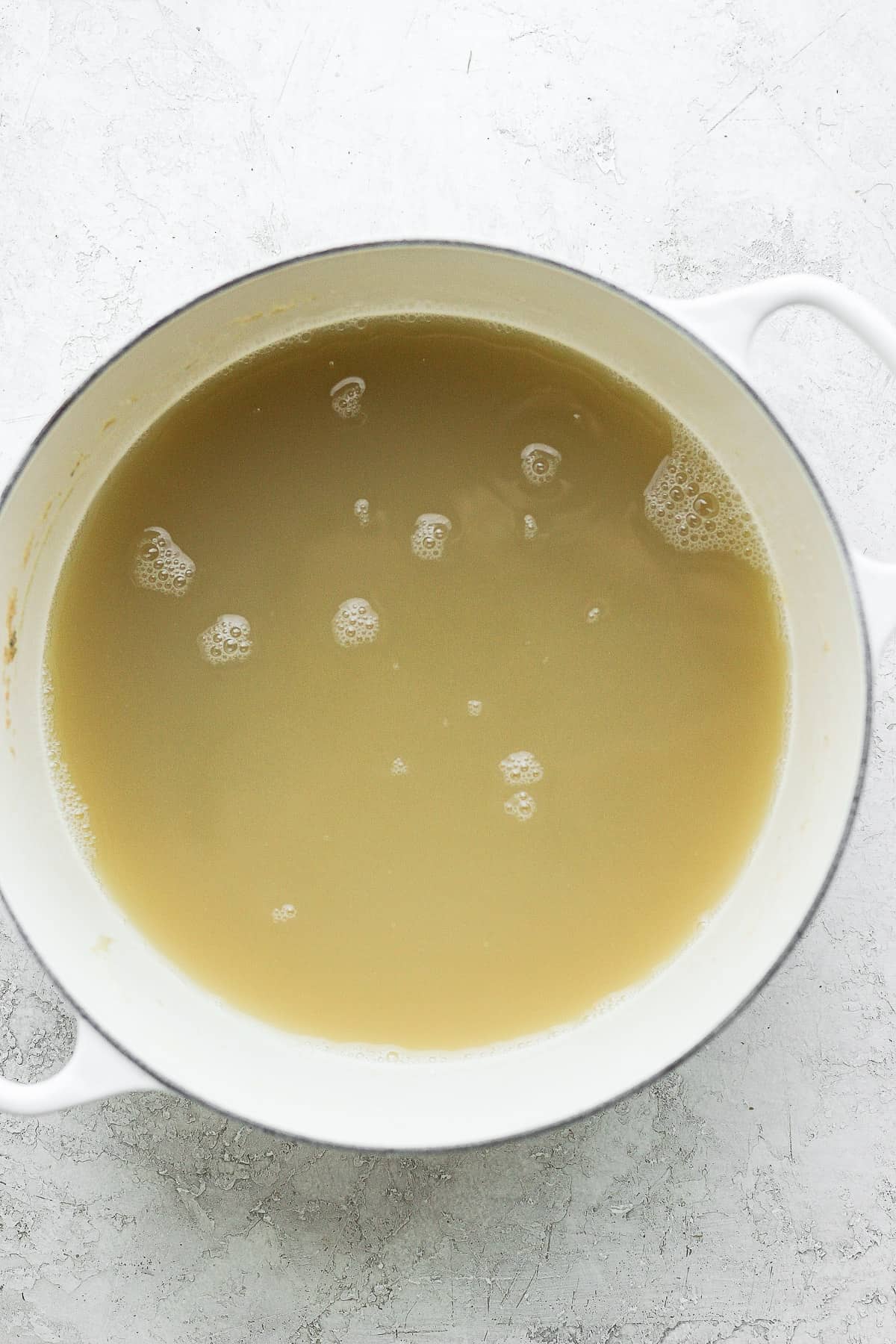
Homemade stock is so pure and a great thing to make when you get to the end of a bag of carrots or celery or for using vegetable scraps. You won’t believe it until you try it, but homemade stock, like this vegetable one, gives an unbelievably delicious boost to recipes. It’s also economical!
And if you’re looking for a non-vegetarian one, be sure to check out my recipe on how make your own chicken stock from scratch.
For more cooking resources, check out:
- How to Make Whipped Coffee
- How to Cook Pasta Perfectly
- How to Cook Brown Rice
- How to Cook Quinoa Step by Step
- How to Make Marinara
- How to Make Oat Flour
- How to Make Pesto
- How to Make Oatmeal
If you’ve found this cooking resource for How to Make Vegetable Broth helpful or if you’ve tried any recipe on FeelGoodFoodie, then don’t forget to rate the recipe and leave me a comment below! I would love to hear about your experience with this technique. And if you snapped some shots of it, share it with me on Instagram so I can repost on my stories!
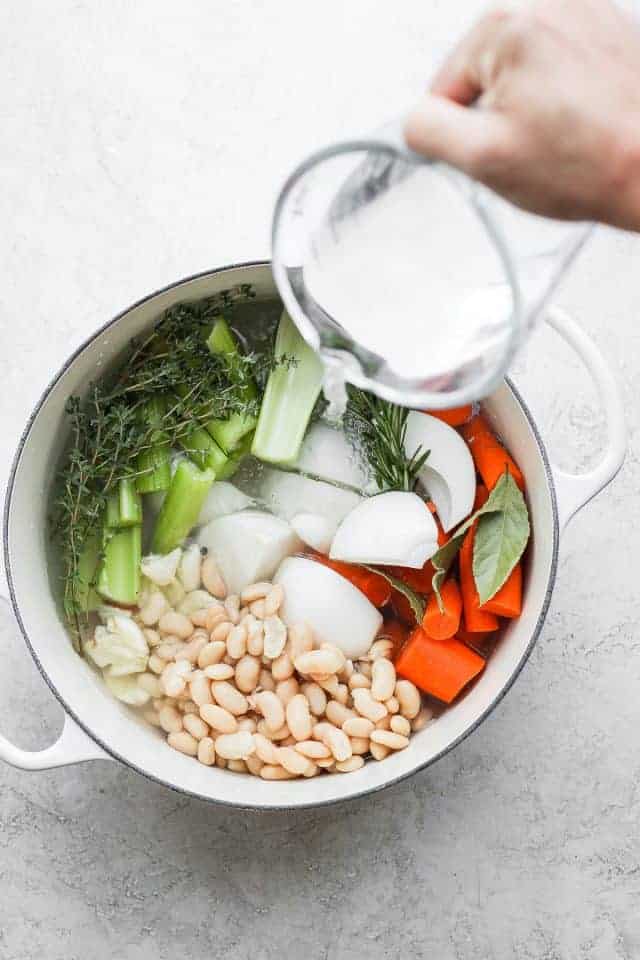
How to Make Vegetable Stock
Ingredients
- 2 white onions quartered
- 5 carrots peeled and quartered
- 3 celery ribs quartered
- 15 ounces cannellini beans with liquid
- 4 sprigs fresh thyme
- 4 sprigs rosemary
- 3 bay leaves
- 6 garlic cloves crushed
- 1 teaspoon whole black peppercorns
- As needed water about 8-10 cups
Instructions
- Place all items in a pot large enough to hold everything.
- Add 8-10 cups of water, enough to cover ¾ of the vegetables in the pot.
- Bring to a simmer on low heat. Once simmering, cook for 2 hours.
- Let cool, then strain. Makes 6-8 cups of broth
Notes
Nutrition
Nutrition information provided is an estimate. It will vary based on cooking method and specific ingredients used.

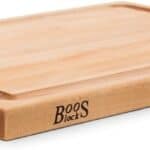

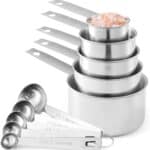
Hello Yumna!
I love homemade soup stock! Can you recommend a veg that can substitute for the carrots? I cannot eat carrots or fennel or corn.
Thank you 🙂
Hi Anna, you can leave the carrot out or you can toss in some caramelized Vidalia onions for that touch of sweetness. Hope you enjoy!
Hi Yumma. I want to know what can I do with the cooked vegetables and beans left – I don’t like throw away food. Thanks for your recipes
I totally understand that! Check out my Mediterranean White Bean Soup recipe.